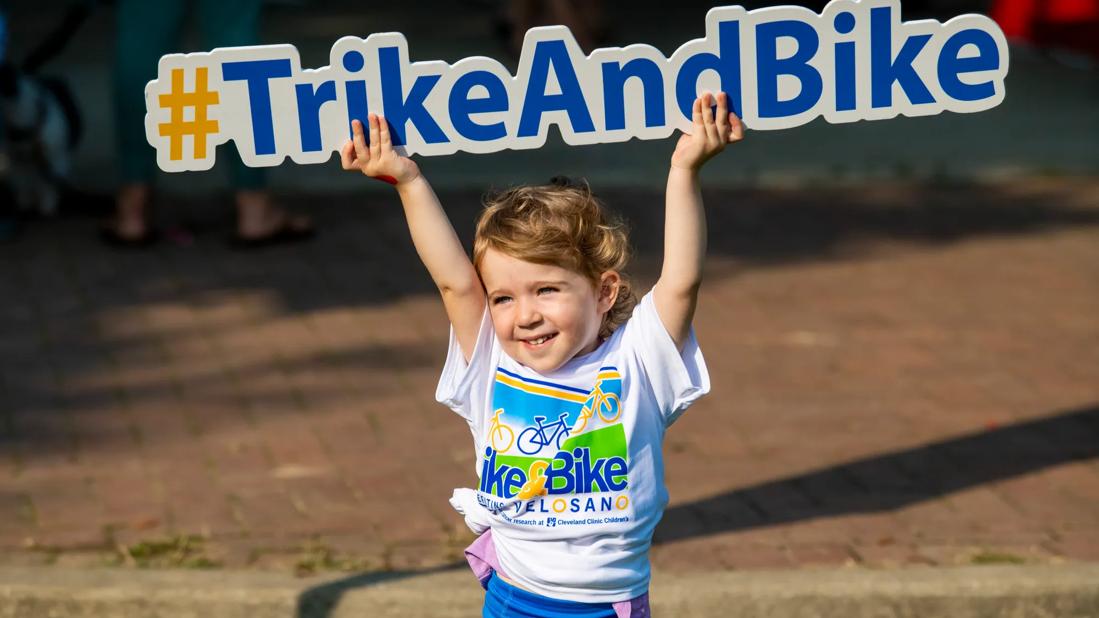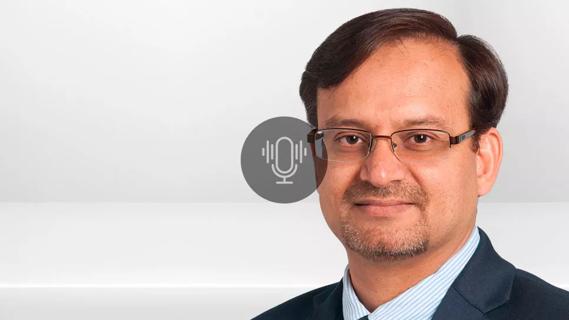Highlighting the importance of a multidisciplinary approach to care

On their path to recovery, pediatric cancer survivors face unique health challenges that require care from a multidisciplinary team of providers with expertise in survivorship.
Advertisement
Cleveland Clinic is a non-profit academic medical center. Advertising on our site helps support our mission. We do not endorse non-Cleveland Clinic products or services. Policy
In a recent Q&A with Seth Rotz, MD, pediatric hematologist/oncologist and Director of the Cleveland Clinic Childhood Cancer Survivorship Clinic, he discusses the main goals of the center, which include a focus on long-term follow-up care of pediatric cancer survivors and the delivery of integrated multidisciplinary care.
The clinic really took off in 2017, and the goal of the program is to provide comprehensive care to survivors of pediatric or young adult cancers and to make sure that we’re doing everything in our power to keep them healthy and living long lives. We do that by having conversations with the patients about the treatments that they received and the experience that they went through to identify any specific medical needs that they may have as a result of their treatment. This includes any unique risk factors they may have due to chemotherapy, radiation, or surgery, as well as the need to screen for long-term effects or to provide interventions.
The clinic currently serves almost 300 patients. Most of them were treated at Cleveland Clinic or Northeast Ohio, but we also have some people that come to us from throughout the country.
There is no “aging out” of our clinic; I will follow people lifelong until I retire, or whatever the case may be. Right now, we have a lot of kids and young adults in their 20s and 30s in our clinic, but we also have people in their 40s, 50s and 60s.
Compared to other individuals of similar age, childhood cancer survivors have a much greater risk of developing chronic health conditions that can be limiting, disabling, or even increase the risk of early death. A lot of those issues stem from the treatments that they received.
Advertisement
Out in the community, most primary care providers don’t have the bandwidth to deal with the intricacies of different treatment regimens to be able to adequately counsel people on the risks and screen for health issues. That is where we come in ― not to do primary care, but to be specialists in survivorships and to make sure that people are getting the information they need to empower them to make healthy choices, as well as set up plans for different types of screening such as for secondary cancers or heart disease.
These patients are really unique—any two childhood cancer survivors will have gotten totally different treatment regimens and will be at totally different risks for long-term effects. Here at Cleveland Clinic, we are fortunate to have great colleagues on both the adult and pediatric sides. We also have colleagues in other disciplines who have interests in childhood cancer survivorship.
For example, if somebody is developing heart disease from their cancer chemotherapy, we have a pediatric cardiologist and an adult cardiologist we can refer them to, depending on how old they are at the time. We also work with male and female fertility experts, pulmonologists, and other specialists with whom we can engage to help us deliver customized care.
There’s a large amount of post-traumatic stress among childhood cancer survivors, and perhaps more so in older kids. Those kids who may have been younger [during treatment] may not remember things, but teenagers certainly do.
There are a lot of emotional demands on the patients that are associated with cancer treatment, as well as on parents, family members, and other caregivers who have gone through the process. So, we try to screen our survivors and people who are with them for those issues and connect them with mental health resources and support groups in the community.
Advertisement
I think that the directions we are moving in include a couple of things: one is figuring out what the underlying mechanisms are, and two is taking a look at some of the genetic susceptibilities — for example, why do we give two different patients high-dose anthracycline chemotherapy and one of them gets heart failure and the other doesn’t? Is there a genetic or lifestyle role in that? And lastly, interventions. What can we do, for example, to intervene and decrease the risk of heart disease?
We do know that obesity, heart disease and diabetes are more prevalent in childhood cancer survivors, but this study took things one step further and looked at the genetic susceptibilities of obesity in childhood cancer patients to see if there are certain things that can further a patient’s risk of obesity and who can we target for aggressive interventions. So, going beyond just the clinical and demographic exposures and adding that genetic component.
Through the work that’s been done previously, we have been able to more clearly understand what drugs and what types of radiation cause long-term problems. Oftentimes in pediatric oncology, we are taking a standard regimen and adding a new drug to that regimen to see if we can make the outcomes better. But we also have some diseases where the outcomes are already very good, and in those diseases, we focus on therapy reduction trials.
We are asking if we can start taking out some of the most toxic chemotherapies that are most likely to cause problems to the survivors and still have the same excellent outcomes, or whether we can reduce the doses of radiation—or reduce radiation altogether—and still have really good outcomes, or if we can reduce chemotherapy that is associated with infertility or heart disease, etc. Needless to say, survivorship data are critical and certainly inform the design of future clinical trials.
Advertisement
Advertisement

Genetic variants exist irrespective of family history or other contributing factors

Use of GLP-1s and improving cardiovascular health lowers risk of hematologic malignancies

Slower drug elimination from the body among females may impact safety and efficacy

Integrated program addresses growing need for comprehensive cancer care among adolescents, young adults and adults under 50 with early onset cancers

Study demonstrates potential for improving access

Approach could help clinicians identify patients at an increased risk of progression who could benefit from more aggressive treatment

Gene editing technology offers promise for treating multiple myeloma and other hematologic malignancies, as well as solid tumors